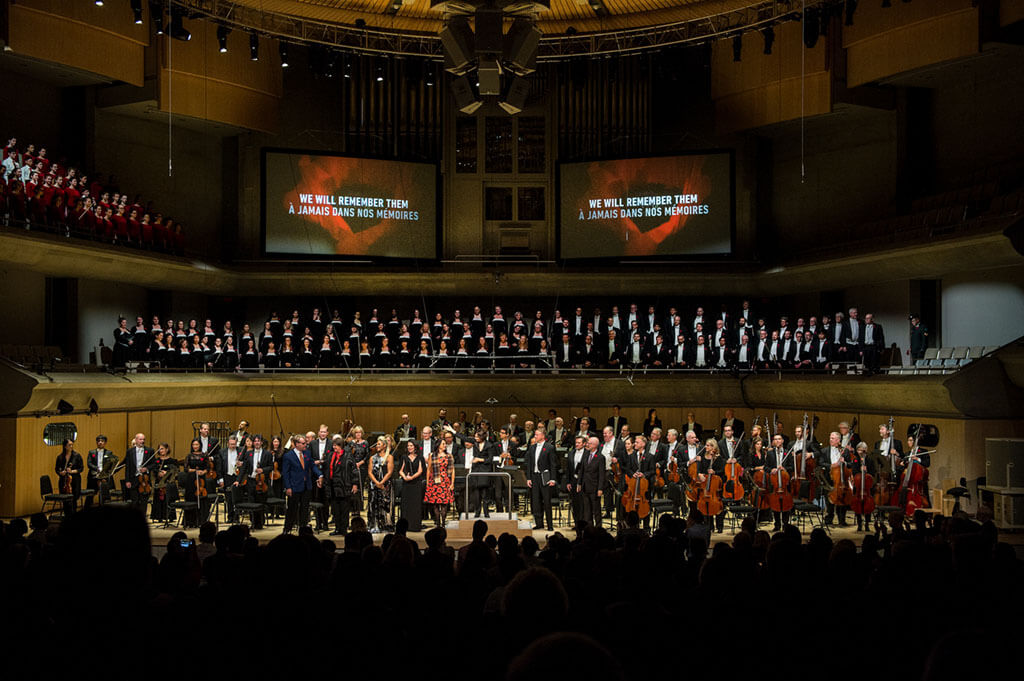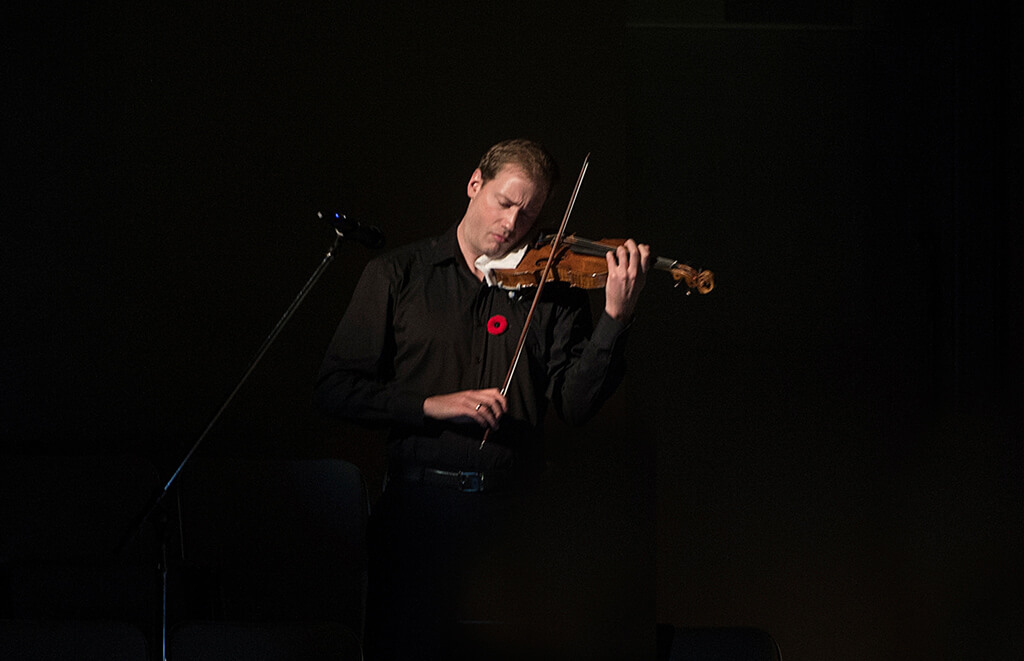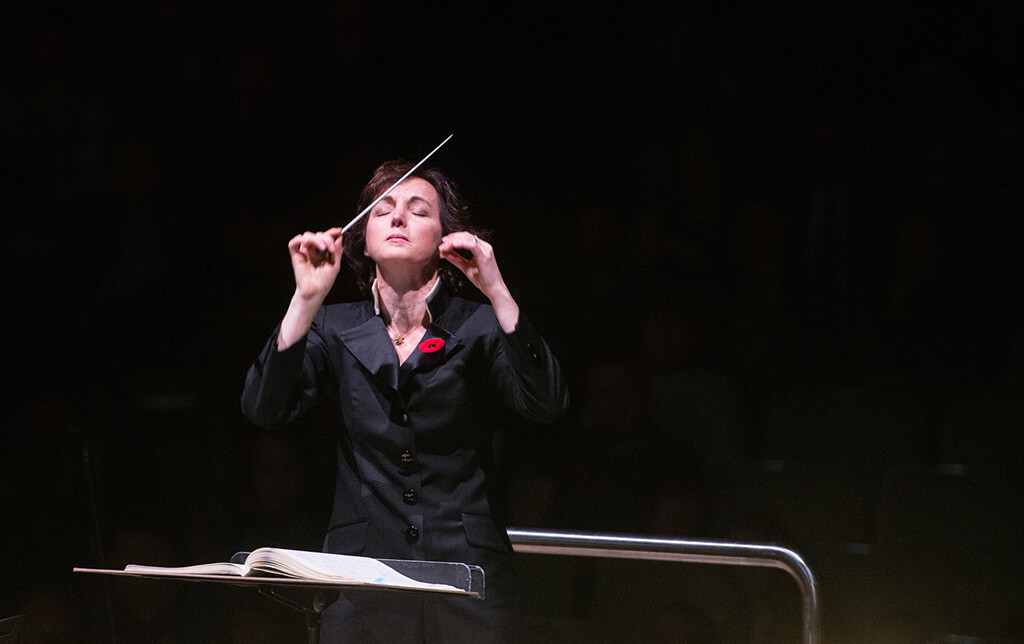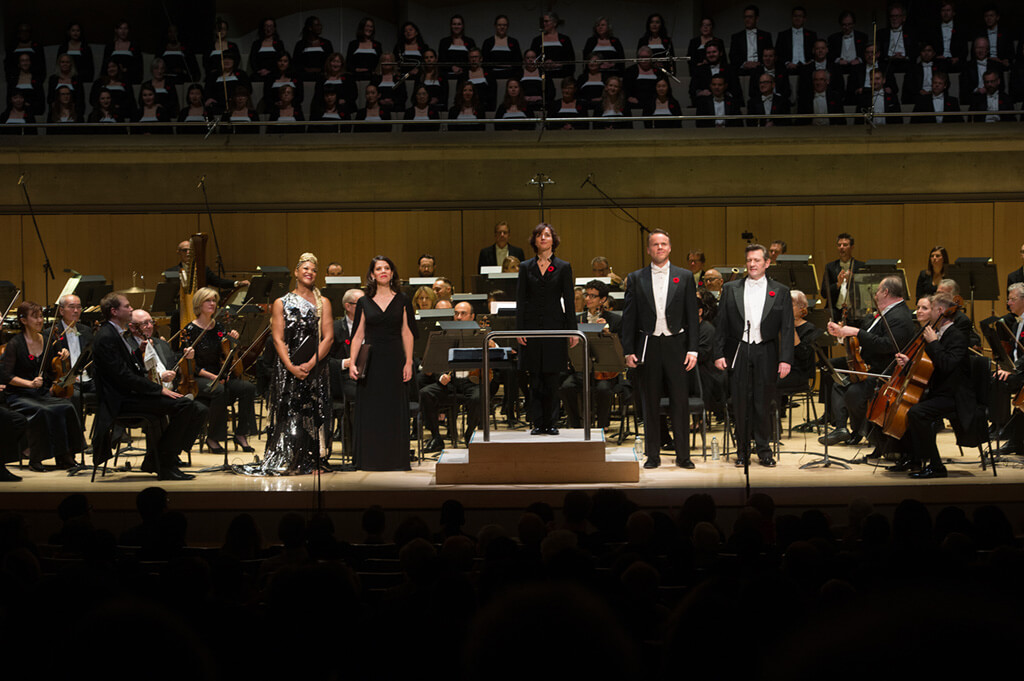
Afghanistan: Requiem for a Generation. Toronto Symphony Orchestra, Toronto Mendelssohn Choir, Toronto Children’s Chorus, and soloists. Tania Miller, conductor. Roy Thomson Hall. Nov, 9. Repeats Nov. 11.
The Toronto Symphony Orchestra’s Remembrance Day concert program is ambitious this year, in design as well as content. It is daring, as well, inviting audiences for the local premiere of a five-year-old work by a Canadian composer few people outside new music circles have heard of. So it is particularly heartening to report that the program worked like a charm at its first performance on Thursday night at Roy Thomson Hall, and that this new work, Afghanistan: Requiem for a Generation, by composer Jeffrey Ryan and poet Suzanne Steele is compelling, powerful stuff.
Those lucky audience members who get experience it on Remembrance Day itself, should feel especially moved.
The Toronto Symphony has gone out of its way in this Sesquicentennial year to bring us Canadian music — and has been paying the price in unsold tickets. Roy Thomson Hall was particularly sparsely attended on Thursday night, which is a shame, because not only was this great Canadian music, but the way in which the evening unfolded did justice to traditional Remembrance Day commemorations, while bringing them up to date with the latest conflicts our armed forces have faced.

The short first half of the program featured bagpipes, trumpet, a bit of poetry, moving archival pictures, and some music by British composer Ralph Vaughan Williams. The highlight was concertmaster Jonathan Crow’s assured, lyrical and impeccably shaped solo in The Lark Ascending, a rhapsodic little tone poem that has to be one of the most beautiful works ever written for string orchestra.
The second half of the program belonged to Ryan and Steele’s 60-minute Requiem, with full orchestra and four vocal soloists augmented by the always-excellent Toronto Mendelssohn Choir and Toronto Children’s Chorus. Soprano Measha Brueggergosman, mezzo Allyson McHardy, tenor Colin Ainsworth and baritone Brett Poegato did excellent work with what was often difficult singing, bringing genuine emotion to the text.

Tania Miller was an able, sensitive conductor throughout the evening.
Steele, who went to Afghanistan with the Canadian Forces in 2008 for two years as an official war artist, returned with verses detailing the drudgery and suffering of the soldiers, and the mixed emotions faced on their return home — either dead or alive. She and Ryan interwove her words with the Latin text of the traditional Requiem Mass to create a many-layered picture of chaos, confusion, hope, relief, and despair.
The best shorthand description I can think of is that this work is a direct descendant of Benjamin Britten’s War Requiem, which is now 55 years old.
Ryan’s music is emphatically modern, notable for its sophisticated rhythmic counterpoint. The music and the texts were always well-matched and conveyed a wide range of dramatic expression. Not all of it was excellent, though. The adult choir voices were rarely used to their full potential either rhythmically or harmonically. Some of the orchestral writing was a bit thin. But these are quibbles, given the sweep and scope of this work, which had its premiere in Calgary in 2012.
I was taken by how Afghanistan: Requiem for a Generation reflects our evolving attitudes towards the carnage of war and hopes that human carnage could one day cease on this planet.

The traditional Roman Catholic Mass for the Dead begins with a prayer that the souls of the dead find eternal rest, and ends with a vision of that rest in Paradise. Along the way, the different elements in the mass allow the mourner to work through different aspects of grieving so that they, too, can emerge with a sense of acceptance and peace.
Benjamin Britten’s War Requiem underlined the desolation and hopelessness of war, and left its listeners with a shred of hope that we might figure out a way to stop wasting human lives. Ryan chose to end his Requiem in a Paradise where the sound of tanks and marching soldiers hummed along in the distance. Where these sounds receding, or coming back for another round?
That was the uncertainty the audience was left to consider at the end of the night.
#LUDWIGVAN
Want more updates on Toronto-centric classical music news and reviews before anyone else finds out? Follow us on Facebook or Twitter for all the latest.
- Classical Music 101: What Does A Conductor Do? - June 17, 2019
- Classical Music 101 | What Does Period Instrument Mean? - May 6, 2019
- CLASSICAL MUSIC 101 | What Does It Mean To Be In Tune? - April 23, 2019



